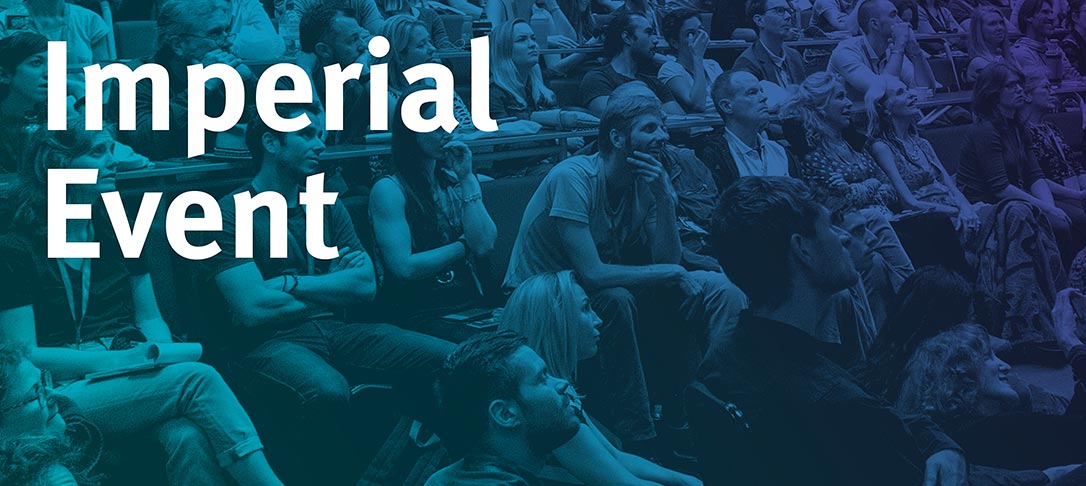
 Join us for the first seminar of 2025 given as part of the Centre for Paediatrics and Child Health (PaeCH) & Mohn Centre Joint Seminar Series.
Join us for the first seminar of 2025 given as part of the Centre for Paediatrics and Child Health (PaeCH) & Mohn Centre Joint Seminar Series.
This seminar will focus on the Centre for Paediatric Blast Injury Studies at Imperial College London.
Dr Emily Mayhew will introduce the seminar, setting the context for why this work is so important.
Professor Anthony Bull will then provide an overview of the Centre’s activities and how it links with other activities across Imperial and internationally.
Dr Paul Reavley will discuss the clinical aspects of treating children with blast injuries and the production of the Paediatric Blast Injury Field Manual.
Sumudith Jayasuriya will discuss his PhD work within the Centre, focused on the effects of physical trauma on bone growth in children.
Further Information
Dr Emily Mayhew is a military medical historian specialising in the study of severe casualty, its infliction, treatment and long-term outcomes in 20th and 21st century warfare. She is historian in residence in the Department of Bioengineering, working primarily with the researchers and staff of the Centre for Injury Studies.
Emily is part of the team that put together the Paediatric Blast Injury Field Manual
Her new book “The Four Horsemen: War, Pestilence, Famine and Death and the Hope of a New Age looks at advances in science, technology and humanitarianism.
Her previous books include: “ A Heavy Reckoning: War, Medicine and Survival in Afghanistan and Beyond”; “The Guinea Pig Club: Archibald McIndoe and the RAF in World War Two” and “Wounded: the Long Journey Home from the Great War” which form the Wounded Trilogy
Professor Bull’s research is focused on the basic mechanics of joints (including the tissues of joints and the mechanics of joints within the whole musculoskeletal system) and the application of this knowledge and technologies developed to the diagnosis and treatment of pathologies and performance parameters.
He leads, and is PI on, the Royal British Legion Centre for Blast Injury Studies that exists to improve the mitigation of injury, improve and advance treatment, rehabilitation and recovery thus increasing lifelong health and quality of life after blast injury (www.imperial.ac.uk/blastinjurystudies). This has a strong biomechanics focus on lower limb and spinal injuries and he has extensive research activity in the area of ligament injuries due to sporting activities.
As Director of the Centre for Medical Engineering Solutions in the Management of Osteoarthritis funded by the Wellcome Trust and EPSRC Professor Bull leads his own research group in musculoskeletal dynamics, and also provides underlying research technology support for nine other investigators funded through the Centre. He has in addition extensive research activity in orthopaedic implant and surgical design in many areas associated with lower limb and upper limb biomechanics and ageing.
Dr. Paul Reavley is a consultant paediatric emergency physician at Bristol Royal Hospital for Children, United Kingdom (UK). He is the co-founder and chair of the Paediatric Blast Injury Partnership, a coalition between Save the Children UK, Imperial College London, World Innovation Summit for Health, Bristol Royal Hospital for Children and kidconfident.org.
The Partnership is dedicated to understanding battlefield injuries in children, preventing them, advocating for children in conflict, and supporting clinicians in conflict zones to improve the treatment and survival of children injured by war. In 2019, the Partnership produced the Paediatric Blast Injury Field Manual, a free trauma resource currently available in seven languages and distributed in several conflict zones. It recently released its Quick Guide – Emergency Pain Management for Injured Children.
Between 2000 and 2018, Dr Reavley served as a British Army medical officer, gaining extensive experience in all aspects of conflict care, including critical care retrieval and capability development. He was the Clinical Director for Acute Care at Bristol Royal Infirmary and has previously worked as a consultant in pre-hospital emergency care and was president of the Emergency Medicine section for the Royal Society of Medicine in London.